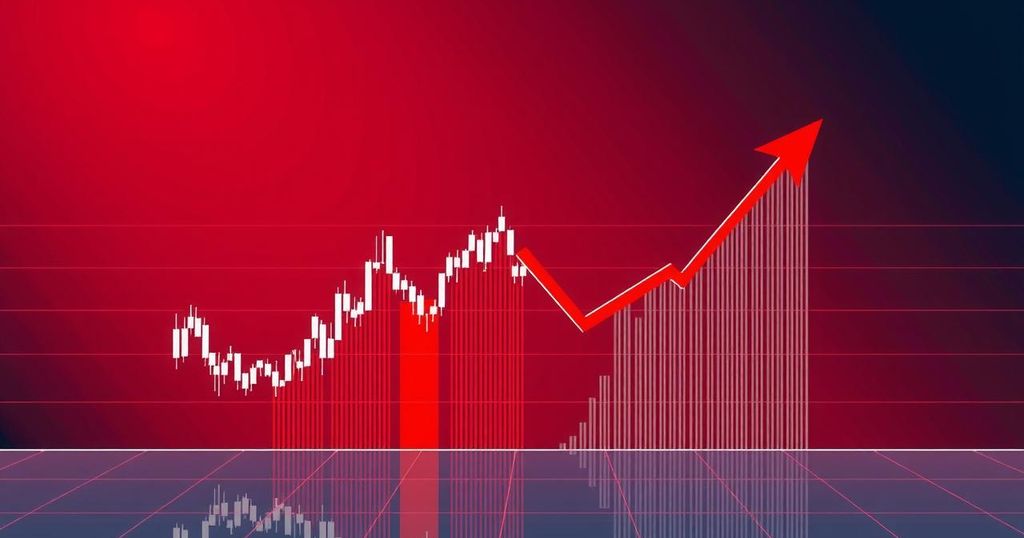Tesla Stock Sees Major Decline, Erasing $700 Billion in Gains Since Election

Tesla’s stock has plummeted, erasing $700 billion in gains since the 2016 election, with significant declines attributed to reduced sales, market competition, and investor concerns over Elon Musk’s political focus. Despite a potential for recovery, valuation concerns remain high amidst ongoing economic challenges.
Tesla’s stock has experienced a significant decline recently, erasing $700 billion in gains accumulated since the 2016 U.S. presidential election. On Friday, shares fell by as much as 4.6% before recovering later in the session. Overall, the stock has fallen more than 28% in the past month and is down nearly 32% since January 1st.
After Donald Trump’s election on November 5, 2016, Tesla thrived due to investor optimism regarding CEO Elon Musk’s close relationship with the president. However, this optimism has dimmed as concerns regarding the core business of car sales have intensified. Recent reports indicate Tesla’s quarterly sales declined for the first time in a decade, and the company is losing its leading position in crucial markets, such as Europe and China.
Investor confidence has also been shaken by worries that Musk’s political engagements may distract him from his responsibilities at Tesla. According to Adam Sarhan of 50 Park Investments, the anticipated benefits from Musk’s political involvement have not materialized, leading to more measured investor reactions.
Tesla’s challenges are exacerbated by a tough macroeconomic climate. The excitement that propelled stock prices to new heights post-election has dwindled due to apprehensions regarding U.S. trade policies and economic growth. The S&P 500 has dropped over 7% since its peak, while the Nasdaq 100 has entered correction territory.
Additionally, Bank of America analyst John Murphy revised his price target for Tesla downward, from $490 to $380. He cited sluggish new car sales, a lack of updates on a more affordable vehicle, and uncertainty around the robotaxi project as reasons for the downgrade. Nevertheless, the stock has entered what is termed an “oversold” zone, indicating a potential for short-term recovery if sales improve or if there is news regarding the robotaxi initiative.
Despite this, Tesla’s elevated forward price-to-earnings ratio of 88 raises questions about its valuation compared to the S&P 500’s ratio of 21. Matt Maley from Miller Tabak + Co. noted that Tesla’s valuation remains high, leading to some skepticism about further increases in share prices amidst ongoing economic uncertainties.
As Tesla faces these challenges, investors are left debating whether the recent downturn presents a viable buying opportunity or signals deeper issues on the horizon.
In summary, Tesla’s stock has significantly declined, losing $700 billion since the 2016 election, primarily due to concerns about sales and Musk’s political distractions. The company faces tough market conditions, with elevated valuations suggesting caution for buyers. Investor sentiment may hinge on future sales performance and strategic updates as the company seeks to regain its footing in the market.
Original Source: nypost.com




